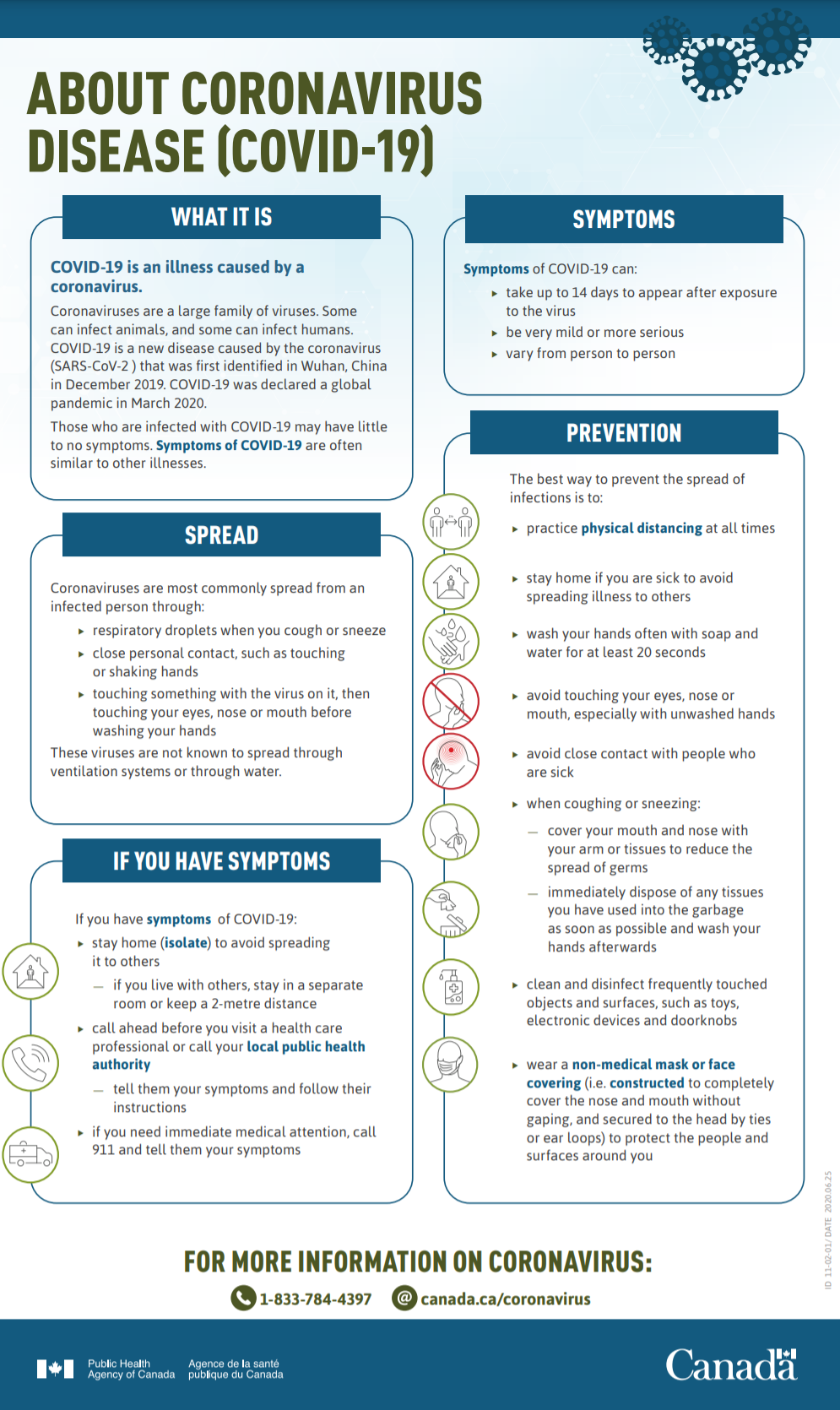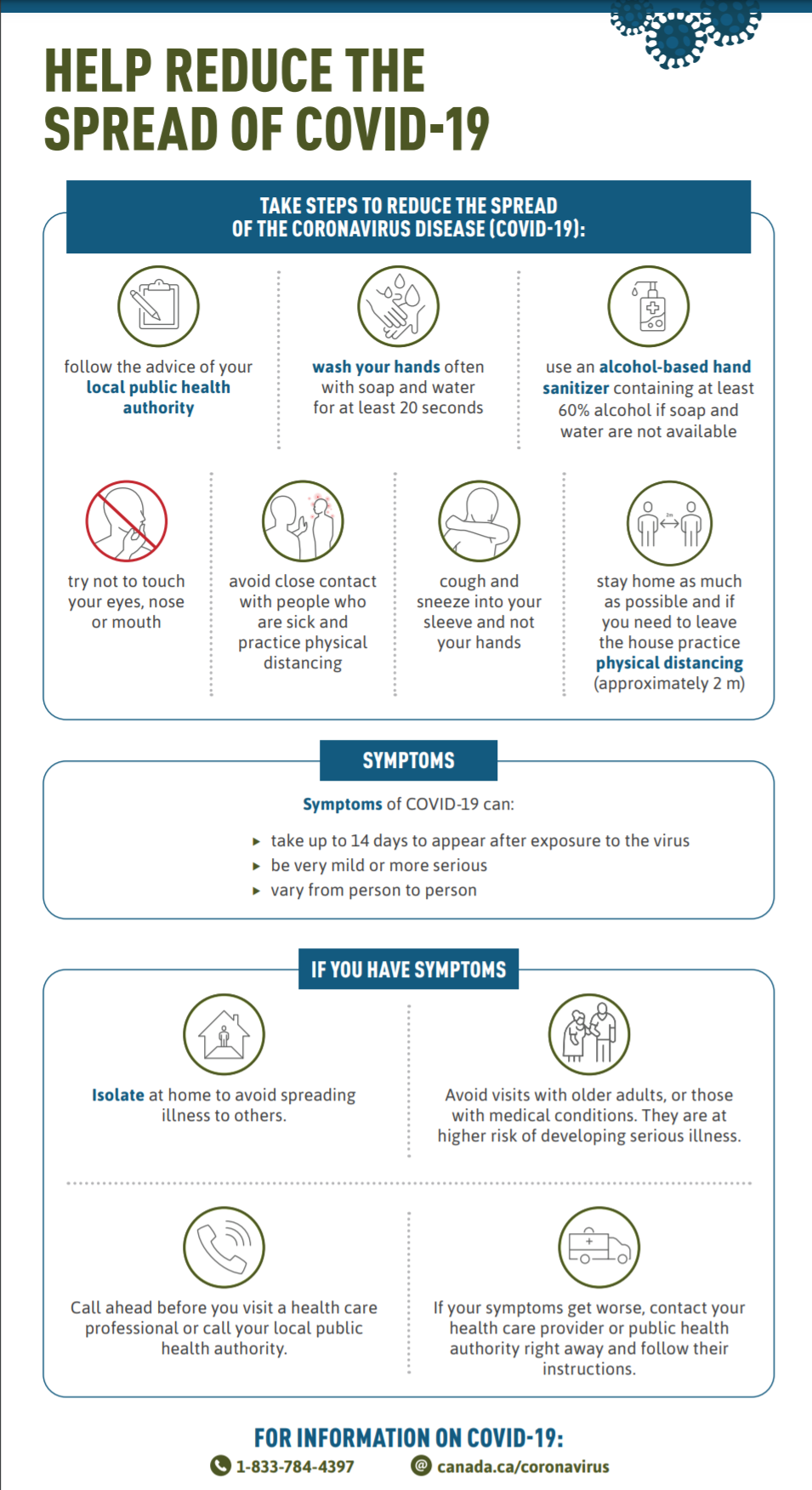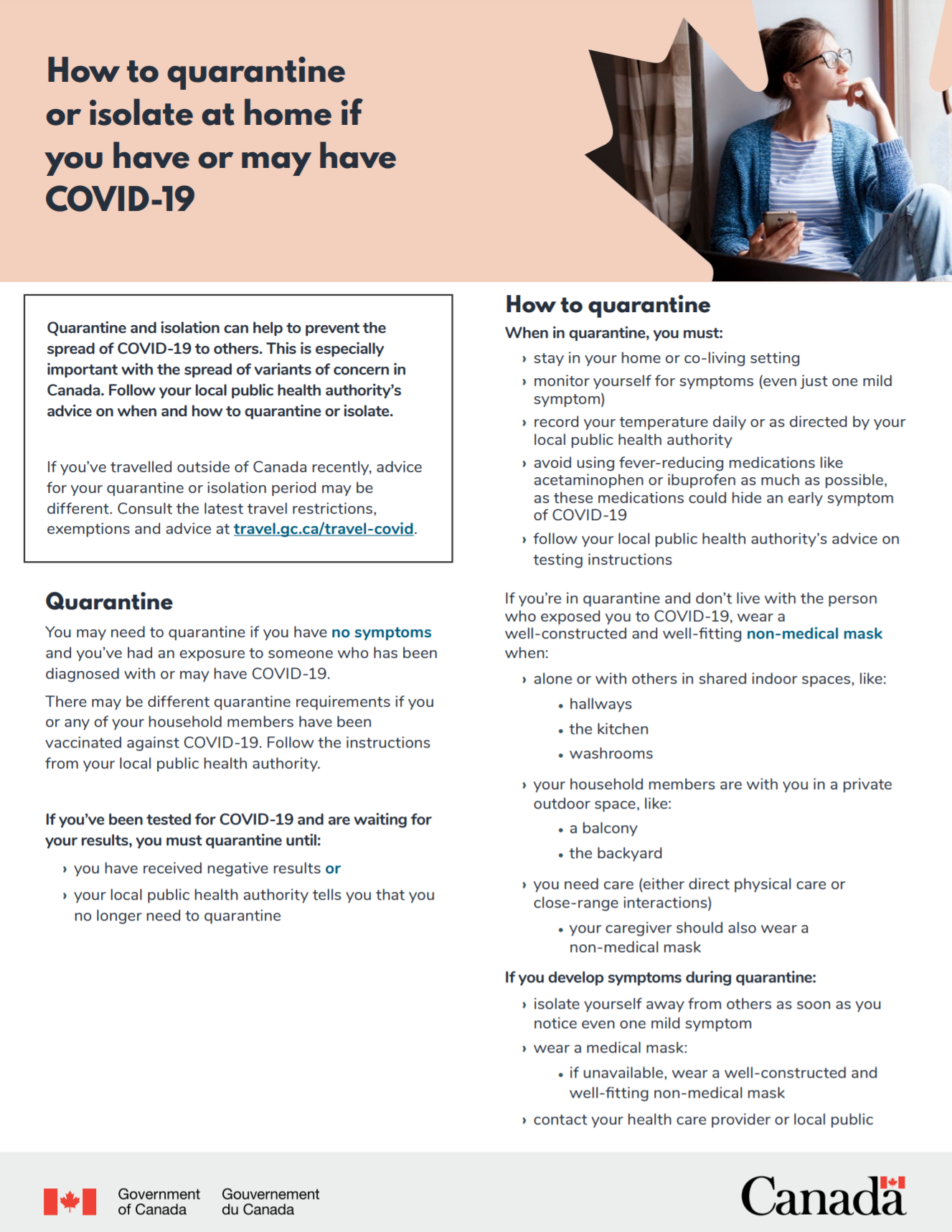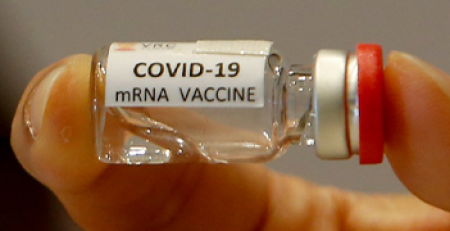What it is
COVID-19 is an illness caused by a coronavirus.
Coronaviruses are a large family of viruses. Some can infect animals, and some can infect humans. COVID-19 is a new disease caused by the coronavirus (SARS-CoV-2) that was first identified in Wuhan, China in December 2019. COVID-19 was declared a global pandemic in March 2020.
Those who are infected with COVID-19 may have little to no symptoms. Symptoms of COVID-19 are often similar to other illnesses.

Symptoms of COVID-19 can vary from person to person. They may also vary in different age groups.
Symptoms may take up to 14 days to appear after exposure to COVID-19.
COVID-19 vaccines are all highly effective at preventing severe COVID-19 illness and death. However, vaccines are rarely 100% effective and you may still become infected with or without symptoms.
Some of the more commonly reported symptoms include:
- new or worsening cough
- shortness of breath or difficulty breathing
- temperature equal to or more than 38°C
- feeling feverish
- chills
- fatigue or weakness
- muscle or body aches
- new loss of smell or taste
- headache
- abdominal pain, diarrhea, and vomiting
- feeling very unwell

Quarantine and isolation can help to prevent the spread of COVID-19 to others. This is especially important with the spread of variants of concern in Canada. Follow your local public health authority’s advice on when and how to quarantine or isolate.
If you’ve travelled outside of Canada recently, advice for your quarantine or isolation period may be different. Consult the latest travel restrictions, exemptions and advice at travel.gc.ca/travel-covid.




